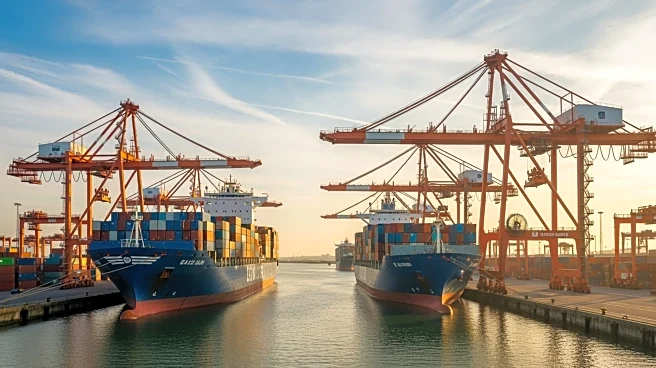What's Happening?
Belgium's ports have resumed operations following a 10-day job action by pilot unions protesting government pension reforms. The unions have given the government until October 24 to show progress in mediation
efforts. The strike had caused significant delays, with over 180 vessels backlogged at the Port of Antwerp. A national strike on October 14 further exacerbated the situation, impacting operations at airports and seaports due to understaffing. The Port of Antwerp is operating at 70% capacity as pilots enforce 12-hour rest periods, and it is expected to take days to clear the backlog.
Why It's Important?
The resumption of operations at Belgian ports is crucial for the logistics and shipping industries, which rely on these hubs for efficient transport of goods. The strike highlighted vulnerabilities in the supply chain, affecting carriers and prompting contingency planning by companies like Maersk. The situation underscores the importance of resolving labor disputes to maintain economic stability and prevent disruptions in international trade. The ongoing negotiations will be pivotal in determining the future of labor relations and pension reforms in Belgium.
What's Next?
Negotiations between the pilot unions and the government are set to continue, with the unions expecting concrete progress by October 24. If no agreement is reached, further strikes could occur, potentially leading to more disruptions. Stakeholders, including shipping companies and government officials, will need to address the underlying issues to prevent future conflicts and ensure smooth operations at the ports.










